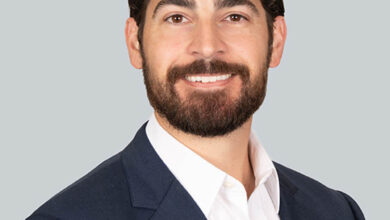
Taylor W. Lawrence
As president of Raytheon Missile Systems, Tucson’s largest private employer and the leading producer of weapons systems for the U.S. and its allies, Taylor W. Lawrence is overseeing the company’s largest expansion here in 30 years.
New construction will add 559,000 square feet of commercial space with a total investment by Raytheon of more than $500 million. The project will boost the number of Raytheon employees here by 2,000, bringing it to a total of 12,000.
“As our business grows, we will hire people at all skill levels with an emphasis on engineering and other higher-wage and technical positions. These jobs will fuel Raytheon’s growth and bring even more top talent to this region,” Lawrence said at an event announcing the expansion.
Lawrence took on the job of VP Raytheon and president of the Missile Systems business – the largest of Raytheon’s four businesses – in July 2008.
Q: What are some exciting developments we can expect to see in the aerospace and defense industry in the next several years – and how is Raytheon positioned to compete in those?
A: Raytheon is at the cutting edge of developing and deploying new technologies and solutions to help keep the brave men and women in uniform serving the U.S. and allied militaries ahead of the escalating threats that we are seeing around the world.
One of the most exciting and challenging fields in which we are investing and winning new programs is hypersonics – weapons that fly at speeds greater than Mach 5. As the world’s largest missile maker, Raytheon is uniquely positioned to design, develop and deploy these next-generation solutions. Raytheon is also a world leader in missile defense. Our radars, sensors and interceptors make up the missile defense shield that is protecting cities and countries today.
Q: As the leading private employer in the region, what does Raytheon see as its role in overall economic development in Southern Arizona?
A: We are proud of our role as Southern Arizona’s largest private employer. We now have more than 13,000 employees in Arizona, and that number is expanding as our business continues to grow.
According to an Arizona State University study, Raytheon has a statewide economic impact of more than $2.1 billion annually. Our role should be to ensure we grow our business through domestic as well as international sales – so that our sales, economic impact and employment numbers all rise in unison. When we do all that, we develop the state’s economy at a scale like no other local business can.
Q: Along with Raytheon Missile Systems, who are some of the key individuals, businesses and organizations who can have the greatest impact on development of the region’s aerospace and defense industry – and how can they work together for the overall good of the region’s economic development?
A: We must have a mindset of working together to grow our local economy. Two of our newest neighbors in the new aerospace corridor are World View and Vector. We’d like to see more businesses populate this new corridor. Additionally, Arizona must continue to invest in its universities so that they remain world-class and are able to work with us to develop the talent that we need to keep our company on the cutting edge.
In addition to the state’s schools, we look to the governor’s office, to the Arizona Commerce Authority, to the chambers of commerce and industry, to Sun Corridor Inc. and the Southern Arizona Leadership Council for that broad support that helps ensure Arizona remains one of the nation’s strongest states for aerospace and defense business. More directly, we do business with more than 500 suppliers around Arizona. The ability to bring reliable components into our factories is critical to successful systems integration and product delivery to our customers.
Q: Looking at the economic direction of the Southern Arizona region today, what is your ideal picture of the overall business environment 10 years from now – and how can we get there?
A: I see a future where Raytheon continues to thrive here. We are building several new facilities at our airport site and are also incrementally expanding our real estate footprint to other parts of the valley.
Beyond that picture of local expansion by our company, the region’s leaders have done an admirable job in attracting new business investment over the past few years. That said, we need to do even more so that higher-value technology jobs come to Pima County.





